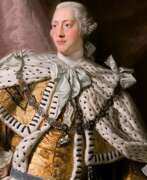Monarchs 19th century
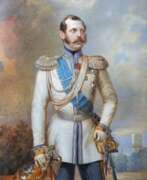

Alexandr II Nikolaevich (Russian: Александр II, Александр Николаевич) was Emperor of All Russia, Tsar of Poland and Grand Duke of Finland of the Romanov dynasty.
Alexandr was the eldest son of the imperial couple Nikolai Pavlovich and Alexandra Feodorovna. The time of his reign from March 2, 1855 to March 13, 1881, the coronation took place on September 7, 1856. Alexander II is known for large-scale domestic reforms, the most important of which was the liberation of serfs (1861).
Responsible for the moral and intellectual development of little Alexandr was appointed poet, humanitarian, liberal and romantic Vasily Zhukovsky, who laid the foundations of the future tsar's character. Alexandr ascended the throne at the age of 36 after the death of his father in February 1855, in the midst of the Crimean War. His first order of business was the construction of new railroads, which was vital to the economy of the vast country, then he abolished serfdom, carried out judicial reform and reform of local government. The Army Statute of 1874 introduced conscription for the first time, making young men of all estates eligible for military service.
One of Alexandr's most important decisions was to soften the fate of those convicted on political articles. Many prisoners were released, and Siberian exiles were allowed to return. The emperor also removed or relaxed heavy restrictions on religious minorities, especially Jews. However, all these liberal innovations eventually led to the birth of a revolutionary movement. In the spring of 1866, the first attempt was made on the tsar, who miraculously escaped, but afterward gave great powers to the secret police under Pyotr Shuvalov. Failures in foreign policy and unforgivable love affairs followed, with the result that Alexandr's authority was greatly undermined. Beginning in 1879, revolutionary terrorism against the person of the Tsar himself intensified. On March 13, 1881, he was mortally wounded by a bomb as a result of a plot organized by the Narodnaya Volya.
In general, during the reign of Alexandr II, a large-scale modernization of Russian institutions was carried out. Russia created the base necessary for the transition to capitalism and industrialization at the end of the century. At the same time, Russian expansion, especially in Asia, was steadily gaining momentum.
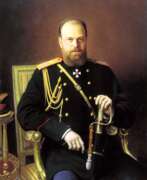

Alexandr III Aleksandrovich (Russian: Александр III, Александр Александрович) was Emperor of All Russia, Tsar of Poland and Grand Duke of Finland of the Romanov dynasty.
Son of Alexandr II and father of the last Emperor of the Russian Empire Nicholas II. He ascended the throne on March 13, 1881 after the murder of his father, Alexandr II, by the People's Revolutionaries, and ruled until November 1, 1894.
Alexandr received the traditional military engineering education for grand dukes, but the greatest influence on the tsesarevich was the teacher of law, Konstantin Pobedonostsev. His ideals of government were radically different from his father's: he was based on the ideas of patriarchal-fatherly autocratic rule, the planting of religious values in society, the strengthening of the class structure, national and indigenous social development.
Already on April 29, 1881 Alexandr III issued a manifesto "On the inviolability of autocracy" and launched a series of reforms, which were aimed at a partial curtailment of the liberal initiatives of the father-reformer. The tsar's domestic policy was characterized by the strengthening of the central government's control over all spheres of the state's life. During the reign of Alexandr III the construction of the Cathedral of Christ the Savior in Moscow (1883) was completed, many new monasteries and temples were built. Also in this period there was economic growth, which was largely due to the policy of increased patronage of domestic industry. The country became the world's largest exporter of agricultural products, rearmed the army and navy.
The most important foreign policy decision of Alexandr III was the alliance with France, which was concluded in 1891-1893.
Alexander III went down in history as the Tsar-Peacemaker - during his reign Russia did not participate in any serious military and political conflict of that time. The only significant battle - the capture of Kushka - occurred in 1885, after which the annexation of Central Asia to Russia was completed.
In general, Alexanr III was characterized by good health, was pious, frugal, modest, spent his leisure time in a narrow family and friends circle. He was interested in music, painting, history. He collected an extensive collection of paintings, decorative and applied arts, sculptures, which after his death was transferred to the Russian Museum founded by Emperor Nicholas II in memory of his father. On November 1, 1894, the emperor died in Livadia (Crimea) from the effects of nephritis.
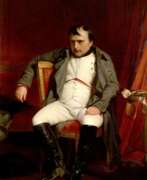

Napoleon I Bonaparte was a French statesman and military leader, Emperor of France (1804-1815).
Napoleon was born in the family of an ignorant Corsican nobleman, graduated from the Brienne military school, then the Paris military school. In 1785 he began military service in the rank of junior lieutenant of artillery in the Royal Army. From the first days of the Great French Revolution of 1789-1799 Bonaparte joined the political struggle on the island of Corsica, in 1792 in Valence joined the Jacobin Club and actively participated in all the turbulent political and military events.
In November 1799 Napoleon was at the head of a coup d'état: the government of the Directory was deposed, and the French Republic was headed by three consuls, the first of whom was Napoleon. In June 1804 Bonaparte was proclaimed Emperor Napoleon I of France, and in December a lavish coronation ceremony took place. After Italy recognized him as its king, in March 1805 he was also crowned in Milan.
With his rise to power, France entered a period of almost continuous warfare. Napoleon greatly expanded the territory of the empire, made most of the states of Western and Central Europe dependent on France. His brothers became kings: Joseph in Naples, Louis in Holland, and Jerome in Westphalia. In 1812, Napoleon made a campaign against Russia and even reached Moscow, but the Russian troops under the leadership of commander M.I. Kutuzov with the active support of all the people completely defeated the "invincible army". This military campaign was the beginning of the collapse of Napoleon's empire. The entry of the anti-French coalition troops into Paris in March 1814 forced Napoleon I to abdicate (April 6, 1814).
Napoleon retained the title of Emperor and was given possession of the island of Elba in the Mediterranean Sea. However, in March 1815, the deposed emperor at the head of a small detachment suddenly landed in the south of France and three weeks later, without a single shot entered Paris. But the emperor failed to live up to the hopes of the people of France, plus his defeat at the Battle of Waterloo all led to his second abdication. As a result, Napoleon Bonaparte was exiled to the island of St. Helena in the Atlantic Ocean, where he died on May 5, 1821.
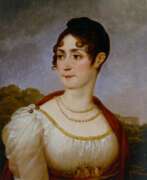

Joséphine de Beauharnais, born Marie Josèphe Rose Tascher de La Pagerie, was Empress of France from 1804 to 1809, the first wife of Napoleon I.
At the age of 16, Rose came to France to marry a young officer, Alexandre de Beauharnais. However, after the birth of their two children, the couple separated but maintained a relationship. During the French Revolution, her husband, who served in the revolutionary army, was guillotined in June 1794. Rose herself was imprisoned, but after the coup d'état of July 27, which ended the terror, she was released.
She was soon introduced to General Napoleon Bonaparte, and although she was a poor widow with two children, he was charmed and married her in a civil marriage in 1796. He and began to call her Josephine. She was with him all the way from general to First Consul and in May 1804 to Emperor of France. However, Josephine failed to produce an heir, prompting Napoleon, in the interest of the country, to divorce her in 1809. Retaining the title of empress and queen, she went to live at Château Malmaison near Paris and then at her Château of Navarre in Normandy, where she died in 1814, a few weeks after Napoleon's abdication.
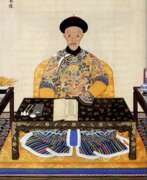

Emperor Daoguang, also known by his temple name Emperor Xuanzong of Qing, born Aixing-Gioro Mianning, was the seventh emperor of the Qing Dynasty and the sixth Qing emperor to rule China from 1820 to 1850.
As emperor and head of the country, Daoguang was weak. His 30-year reign was accompanied by internal and external problems, chief among them the First Opium War and the outbreak of the Taiping Rebellion. The country he led also experienced growing economic tensions, sectarian instability, and active foreign interference, which eventually led to the collapse of the Qing dynasty in 1911.
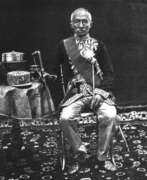

Mongkut, also known as Rama IV, was King of Siam (modern-day Thailand) from 1851 to 1868.
Mongkut was a talented artist and expressed his art through various media. He was fond of painting, wood carving and other artistic techniques. His works mainly reflected Thai culture, nature and religious themes.
Mongkut supported the development of art during his reign by encouraging and sponsoring artists to create new works, murals and decorations in monasteries and temples.
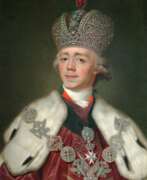

Paul I, Emperor of All Russia, a member of the Holstein-Gottorp-Romanov dynasty, son of Catherine II and Peter III.
He came to the Russian throne on November 6, 1796 after the death of his mother - Empress Catherine II. And the first thing he did was to demonstrate to the world that he would conduct his own policy, releasing from prison all those whom his mother had sent there, and putting his own people in key positions in the state. Everything that was associated with the name of Catherine II, Paul sought to destroy and oblivion. Then Paul engaged in monetary and military reforms, serious transformations were subjected to state administration and class policy, the situation of the peasants. The emperor also interfered in the daily life of his subjects, issuing decrees even on what clothes can be worn and what dances to dance.
In foreign policy, Paul I became famous for fighting the ideas of the French Revolution. He introduced the strictest censorship in book publishing, banning French books as well as fashion. During Paul's reign, thanks to the commander Alexander Suvorov and Vice-Admiral Fyodor Ushakov, the Russian army and navy achieved remarkable victories, cooperating with Prussian and Austrian forces. However, later the emperor showed his fickle character, broke off relations with his allies and formed an alliance with Napoleon, making peace with France in 1801, which eventually led to unfortunate consequences for Russia.
The reign of Emperor Paul I lasted only four and a half years, but in general left a very controversial trace in the history of Russia and ended with his assassination as a result of a palace conspiracy. Historians still debate whether he was a despot and autocrat or a reformer unappreciated by his contemporaries.
